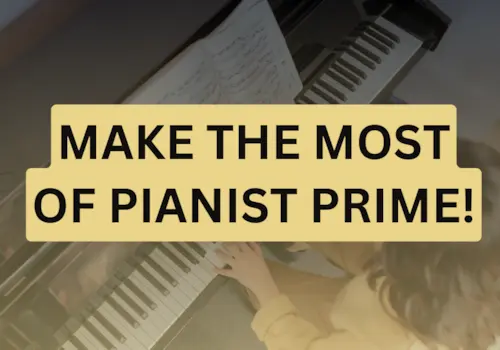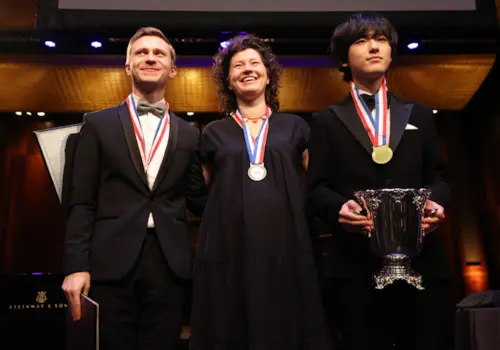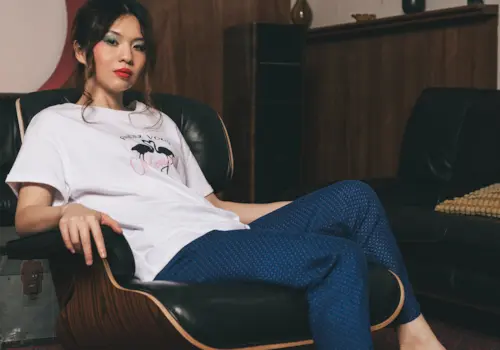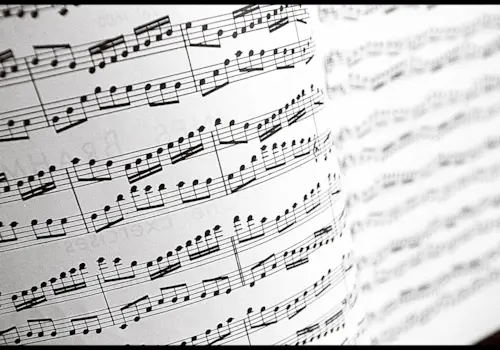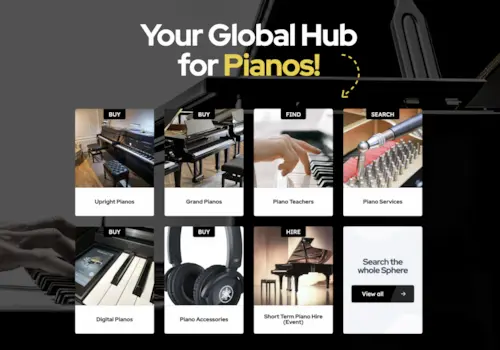They can help, they can hinder; they can enlighten, they can confuse! Piano teachers are wonderful, but they can also be terrible. We take a look at what makes a great teacher and how you can find one for yourself.
by Inge Kjemtrup.
This article appeared in issue 45 of Pianist.
Back in the olden days, bad piano teachers were really, well, bad.
They rapped your knuckles with a ruler or slammed the fall-board on your fingers if you made a mistake. They shrieked at the slightest lapse and aimed to humiliate as much as possible.
Today, physical punishment and screaming are thankfully unacceptable, but bad teachers still exist and hapless pupils still suffer, often staying with Teacher Bad Vibes because it's hard to pinpoint the problem (and Teacher Bad Vibes has such a world-beating reputation). In the course of interviewing students and teachers for this article, I amassed a sizeable catalogue of teacherly crime. I was told about piano teachers who:
✔ Forgot students' names, level of playing and musical assignments (reason: a huge studio – one teacher, 60 pupils)
✔ Assigned music that's much too hard, causing frustration and destroying self-confidence
✔ Assigned music that's much too easy, causing frustration and destroying self-confidence
✔ Let a cat wander across the piano keys during a lesson (no, not Nora the Cat)
✔ Made every pupil in the studio cry at least once
✔ Demanded that departing students 'return' all the trophies and awards won under her tutelage

Cats wandering across the piano keys during a lesson was just one of many 'teacherly crimes'
But if these are major crimes, there are minor offences as well, including some that can only be classified as peculiar: take the case of the teacher who decided that one of her students, a teenage boy, needed more passion in his playing. She contrived to leave him alone in her house for a weekend – along with a teenage girl he fancied. My informant was coy about whether this really worked.
Student-teacher relationships: The ideal vs the less-ideal

This is not to say that students are always innocent victims, not by any means (and teachers could write volumes on this topic), but the student generally has less power in the relationship, which means the teacher has a great responsibility. In The Art of Piano Playing, legendary teacher Heinrich Neuhaus drew a contrast between an ideal relationship in which the teacher 'becomes a senior colleague endowed with greater experience and knowledge, talking to his younger brothers-in-art of their favourite subject' and a less-ideal one where the model is 'relationship between the army commander and the private'.
Neuhaus wrote those words when the all-powerful teacher and unquestioning student model was still dominant, but he understood, probably in part from teaching the likes of Radu Lupu, Sviatoslav Richter and Emil Gilels, that alienating a student through severe discipline has its limits. He commented, "The fullest possible understanding between teacher and pupil is one of the most important conditions for fruitful teaching."
"Respect and understanding are key", agrees piano teacher Karen Lipton, who believes that her greatest challenge as a teacher is "to discipline when you need to make pupils work, but also, to understand that they do have other things in their life other than piano, and you sometimes need to take that into account."
Another teacher, Tom Klidzia, takes a different view of the key factor in a successful teacher-student relationship: "Almost number one is giving a sense that you are going to provide structure and discipline, so they aren't just going to have a good time. There's so much to be done as a piano teacher! The problem with a warm, friendly atmosphere is that some students just want to talk."
Teaching no-no’s – from the pros
1. Don’t compare your students to each other
In every lesson room, a delicate dance of expectations is taking place. A student may expect a teacher to help her become an advanced player, while her teacher may have little expectation of the student ever getting beyond the basics.
2. Pay attention!
Equally disturbing to students is a teacher who doesn't seem to be paying attention. "I think he was thinking of other pupils while I was there," one student recalls sadly. "It's important that you feel as a student that the teacher is focused on you," says Pianist writer Lucy Parham. "Listening is important," says Klidzia. "If students say they enjoy learning a new style, for instance, that's good to know."
3. Remember that being a good pianist doesn’t automatically mean you’ll be a good teacher
Must a good teacher also be an active performer? That's a question Neuhaus grappled with as he examined the differences between the teacher-performer and the 'pure' teacher at least from the student's point of view: "[The 'pure' teacher's] life and profession seem unwaveringly directed at a single aim merely because, to put it bluntly, he has never had to sit on two chairs. He devotes himself entirely to his pupils." A teacher who performs may not fully be involved with his pupils, yet one who does not perform may not have a full perspective on the process of playing in public.
Performer-teacher Lucy Parham has given some thought to this paradox. "I've learned a lot from teaching but also from performing. If [a teacher] has been out there on the stage it helps; you have been through it." In the final analytics, "A teacher of any instrument... must first and foremost be a teacher of music, in other words an expounder and interpreter of music," wrote Neuhaus.
How to approach amateur adult students

Amateur adult students can be a puzzle to teachers. For one thing, their ability spans the spectrum, from complete beginner to near professional, and they come with varying levels of dedication to their art. Parham, who has taught several amateurs, says that she approaches them differently, "because I know they're doing it for love and they have less time. I try to make a structure and a programme, doing a little bit each week."
Where she might require a young professional to memorise an entire sonata for a lesson, she might ask the amateur to memorise a page. "They want to progress, but they only have so much time," she explains.
Teachers need to be cautious about seeming to patronise their amateur students, who are often accomplished and goal-driven. "Some teachers, when they learn I'm an amateur, they level off expectations," says Sabine Vinck, whose musical accomplishments include winning the 2005 Pianist-Yamaha Competition for Outstanding Amateurs. "I've played for some people and realise after one lesson it's not going to work out, because they seem to think 'it's good enough because you are an amateur!'"
When is it time to call it quits?
Just as with personal relationships, sometimes it's difficult to know when you're stuck in a bad teacher-student relationship or even when it's simply time to move on.
The problem is less acute for some teachers, who automatically move their pupils on after a certain grade exam. Some pupils cling like barnacles to their teachers, well past they time when they should have left. How do you know when it's time to go? "Your piano lesson should be the highlight of the week," says teacher Murray McLachlan, who suggests when "it gets empty, routine-filled and frustrating" or you are dreading lessons and feel you know what your teacher is going to say before they say it, that perhaps it's time for a change.
Sometimes it's the teacher who calls a halt. It's a situation that Lipton has faced before. She tries to find a tactful way to give notice. "I would discuss with their parents, and maybe give a time frame for it: say, if no improvement in a month, they should think about changing teachers, and so on."
Although I began this article with tales of terrible teachers, in fact I heard many more stories of outstanding, life-changing teachers. Several people remarked upon their "luck" in having progressed from one teacher to the next just at the point where they needed a new outlook. Vinck, for instance, reverently describes her studies with Robert Levin at Harvard: "He freed us to think about music. We had to write a paper on every piece we played, which made me realise how much music there is to consider. To me that was really a revelation. Working with him made music become an obsession."
Taking piano lessons is a journey. It may be a limited journey, ending when you arrive at the point where you can solve your own musical and technical problems – or it may be a life-long journey, an enjoyable ongoing process in which you explore great music under the guidance of an expert.

